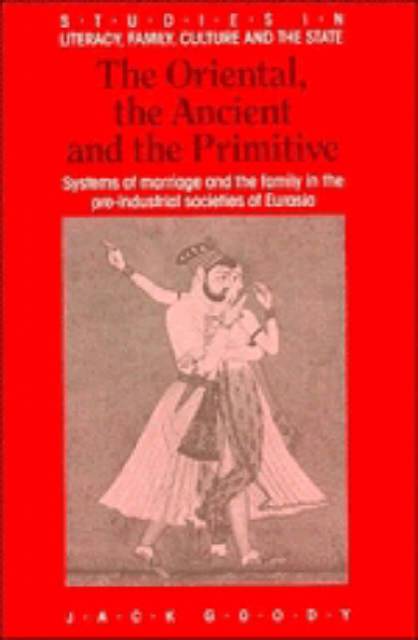
Je cadeautjes zeker op tijd in huis hebben voor de feestdagen? Kom langs in onze winkels en vind het perfecte geschenk!
- Afhalen na 1 uur in een winkel met voorraad
- Gratis thuislevering in België vanaf € 30
- Ruim aanbod met 7 miljoen producten
Je cadeautjes zeker op tijd in huis hebben voor de feestdagen? Kom langs in onze winkels en vind het perfecte geschenk!
- Afhalen na 1 uur in een winkel met voorraad
- Gratis thuislevering in België vanaf € 30
- Ruim aanbod met 7 miljoen producten
Zoeken
The Oriental, the Ancient and the Primitive
Systems of Marriage and the Family in the Pre-Industrial Societies of Eurasia
Jack Goody
€ 92,45
+ 184 punten
Omschrijving
Continuing the comparative survey of pre-industrial family formation undertaken in The Development of Family and Marriage in Europe (1983), Professor Goody looks in depth at kinship practice in Asia. His findings cause him to question many traditional assumptions about the "primitive" East, and he suggests that, in contrast to pre-colonial Africa, kinship practice in Asia has much in common with that prevailing in parts of pre-industrial Europe. Goody examines the transmission of productive and other property in relation both to the prevailing political economy and to family and ideological structures, and explores the distribution of mechanisms and strategies of management across cultures. The book concludes that notions of western "uniqueness" are often misplaced, and that much previous work on Asian kinship has been unwittingly distorted by the application of concepts and approaches derived from other, inappropriate, social formations.
Specificaties
Betrokkenen
- Auteur(s):
- Uitgeverij:
Inhoud
- Aantal bladzijden:
- 564
- Taal:
- Engels
- Reeks:
Eigenschappen
- Productcode (EAN):
- 9780521367615
- Verschijningsdatum:
- 8/02/1990
- Uitvoering:
- Paperback
- Formaat:
- Trade paperback (VS)
- Afmetingen:
- 150 mm x 235 mm
- Gewicht:
- 843 g

Alleen bij Standaard Boekhandel
+ 184 punten op je klantenkaart van Standaard Boekhandel
Beoordelingen
We publiceren alleen reviews die voldoen aan de voorwaarden voor reviews. Bekijk onze voorwaarden voor reviews.









